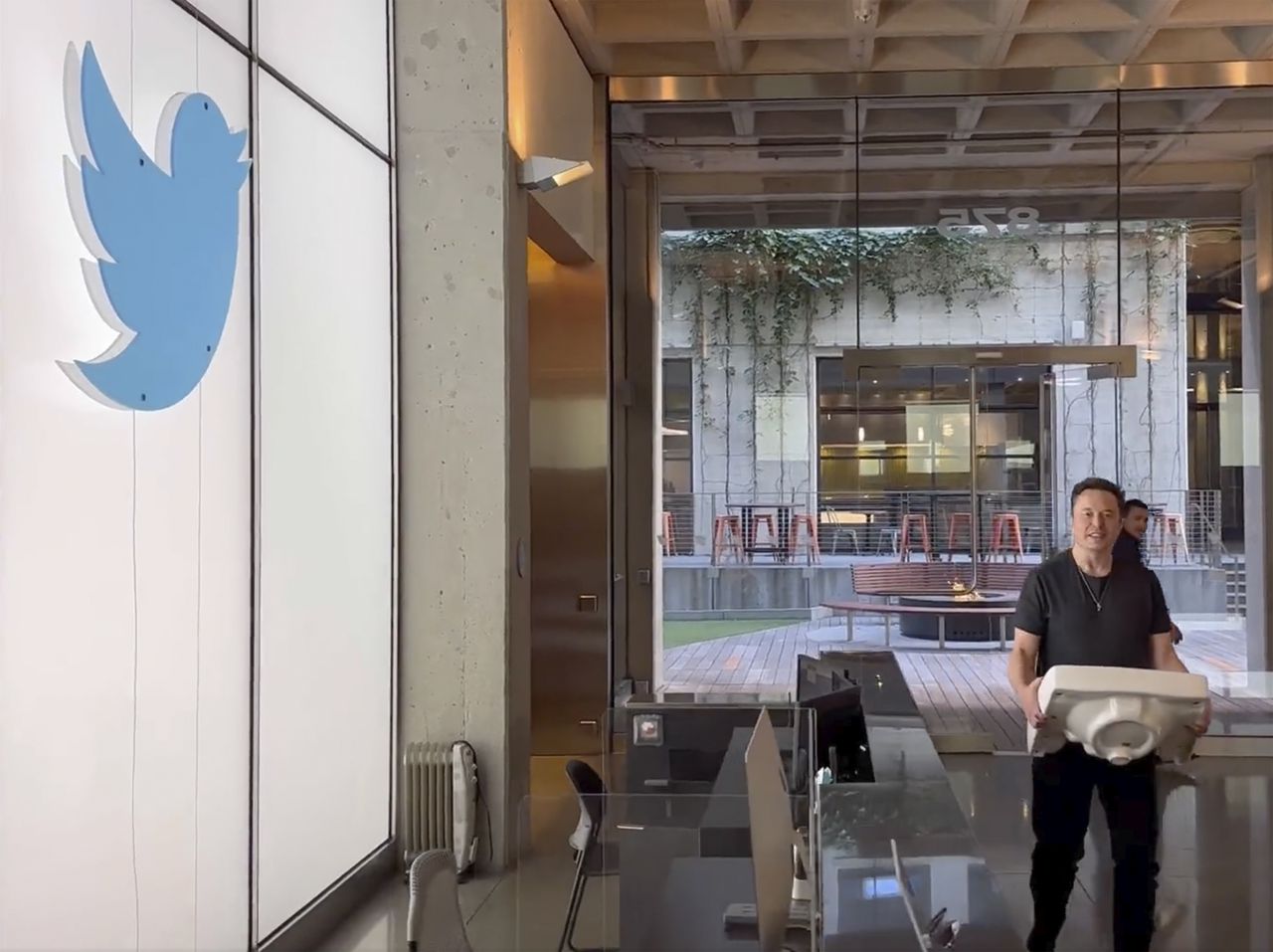Elon Musk deletes unfounded conspiracy theory tweet about Paul Pelosi attack
Elon Musk on Sunday tweeted a link to an unfounded rumor about the attack on House Speaker Nancy Pelosi’s husband, just days after Musk’s purchase of Twitter fueled concerns that the social media platform would no longer seek to limit misinformation and hate speech.
Musk’s tweet, which he later deleted, linked to an article by a fringe website, the Santa Monica Observer, an outlet that has previously asserted that Hillary Clinton died on Sept. 11 and was replaced with a body double.
In this case, the article recycled a baseless claim that the personal life of Paul Pelosi, the speaker’s husband, somehow played a role in an intruder’s attack last week in the couple’s San Francisco home, even though there is no evidence to support that claim.
Musk did so in reply to a tweet by Hillary Clinton. Her tweet had criticized Republicans for generally spreading “hate and deranged conspiracy theories” and said, “It is shocking, but not surprising, that violence is the result.”
In response to Clinton’s tweet, Musk provided a link to the Santa Monica Observer article and added, “There is a tiny possibility there might be more to this story than meets the eye.”
The Los Angeles Times, the dominant news organization in the Southern California area where the Observer is located, has said the Observer is “notorious for fake news.”
Police in San Francisco have said the suspect in last week’s attack, identified as David DePape, 42, broke into the Pelosi family’s Pacific Heights home early Friday and confronted Paul Pelosi, demanding to know, as the AP has reported, “Where is Nancy?”
The two men struggled over a hammer before officers responding to a 911 call to the home saw DePape strike Paul Pelosi at least once, police said. DePape was arrested on suspicion of attempted murder, elder abuse and burglary. Prosecutors plan to file charges on Monday and expect his arraignment on Tuesday.
Police say the attack was “intentional” and not random but have not stated publicly what they consider to be the motive.
The exchange between Musk and Clinton occurred a day after Yoel Roth, Twitter’s head of safety and integrity, tweeted that the company’s policies toward “slurs” and “hateful conduct” were still in place.
“Bottom line up front: Twitter’s policies haven’t changed. Hateful conduct has no place here,” Roth wrote.
Shortly after Musk took control of Twitter, some accounts on the platform began tweeting messages ranging from racist slurs to political misinformation, such as “Trump won,” to see what Twitter will now tolerate.
Musk himself said Friday that he would form a “content moderation council” for Twitter and promised advertisers that the website would not devolve into a “free for all hellscape.” Musk has also described himself as a “free speech absolutist.”
But at least one major advertiser, General Motors, has said it will suspend advertising on Twitter while it monitors the direction of the platform under Musk.
Also on Sunday, Sen. Amy Klobuchar, a Minnesota Democrat, said on NBC’s “Meet the Press” that she didn’t trust Musk to run Twitter.
Referring to antisemitic attacks and the QAnon conspiracy theory that were advanced online by DePape, the suspect in the attack, Klobuchar said, “I think you have to have some content moderation.”
“If Elon Musk has said now that he’s going to start a content moderation board,” the senator said, “that was one good sign. But I continue to be concerned about that. I just don’t think people should be making money off of passing on this stuff that’s a bunch of lies.”
